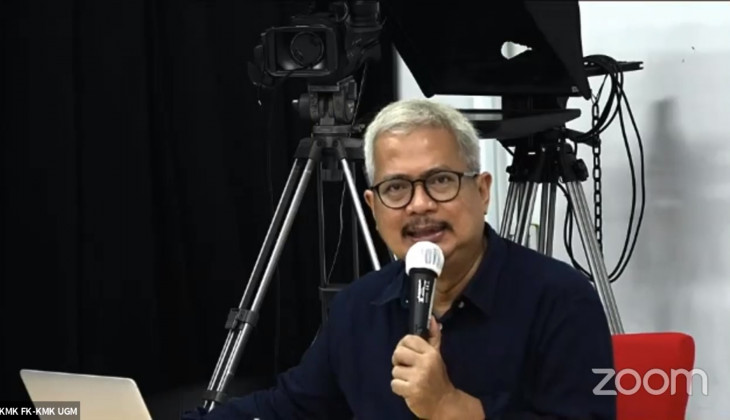Since 2014, the Centre for Health Policy and Management, Faculty of Medicine, Public Health, and Nursing UGM has conducted research to evaluate and monitor the national health insurance policy. This study provides an overview of the conditions of the national health insurance implementation in Indonesia, which are considered to have several problems.
In its Policy Analysis Forum entitled “Evidence-Based Evaluation of Law on National Social Security System and Law on Social Security Agency” which was held on Thursday (18/6), the Head of the Health Policy and Management Department, Prof. Laksono Trisnantoro, M.Sc, Ph.D, said it is necessary to evaluate those policies.
“Overall, this shows that the national health insurance implementation has not been as expected by the Law on National Social Security System and Law on Social Security Agency, and the 1945 Constitution,” he said.
The national health insurance, according to him, has not fulfilled the principles of equity and social justice because some of the funds for the Contribution Assistance Recipient from the National Budget are not used for the poor and underprivileged, and there are regional disparities in the use of the social security funds.
Besides, governance is still not optimal in terms of data transparency, accountability, and the role of local governments in implementing the national health insurance, while the health service quality system and the function of preventing and prosecuting fraud are not yet running well.
Through a series of policy forum discussions, the Centre for Health Policy and Management UGM strives for improvements through transformation to the government. According to him, this discussion series transformed the research results and responded to various other policy issues in the context of the accuracy of the contents of Law on National Social Security System and Law on Social Security Agency.
“The expected results are the transformation of research results to decision-makers, expanding the distribution of research results through mass media, responding to the developing national health insurance issue in the context of the contents of the Law on National Social Security System and Law on Social Security Agency, as well as providing advice for policymakers,” said Laksono.
Some time ago, the government announced that it would again decide to increase Social Security Health Agency contributions through Presidential Regulation Number 64 of 2020 about the Second Amendment to Presidential Regulation Number 82 of 2018 about Health Insurance.
Aside from changing the Social Security Health Agency’s charge, the National Social Security Board also plans to set the standard class in providing health services. Standard class is a service class provided for all participants of the national health insurance program.
According to a researcher at the Centre for Health Policy and Management, M. Faozi Kurniawan, Presidential Decree No. 64 of 2020, has not been able to resolve the deficit problem because the fees are still under-priced. Resolving the deficit problem, he explained, could not be done only by increasing the fees, especially if a high increase occurred in the recipient of contribution aid from the national budget and PPU, which had been positive so far.
“It is necessary to improve governance and management to overcome under-pricing of dues, arrears in fees, cost-sharing for expensive illnesses, and a fraud detection system,” he explained.
He added, before fulfilling equal distribution of health facilities in limited access areas, limiting medical benefits, adjusting the charge of contribution, arrears in contribution, and cost-sharing for expensive illnesses, the standard class determination has yet to realize a fair national health insurance program.
Source: https://ugm.ac.id/id/berita/19579-pakar-ugm-uu-sjsn-dan-uu-bpjs-perlu-dievaluasi



